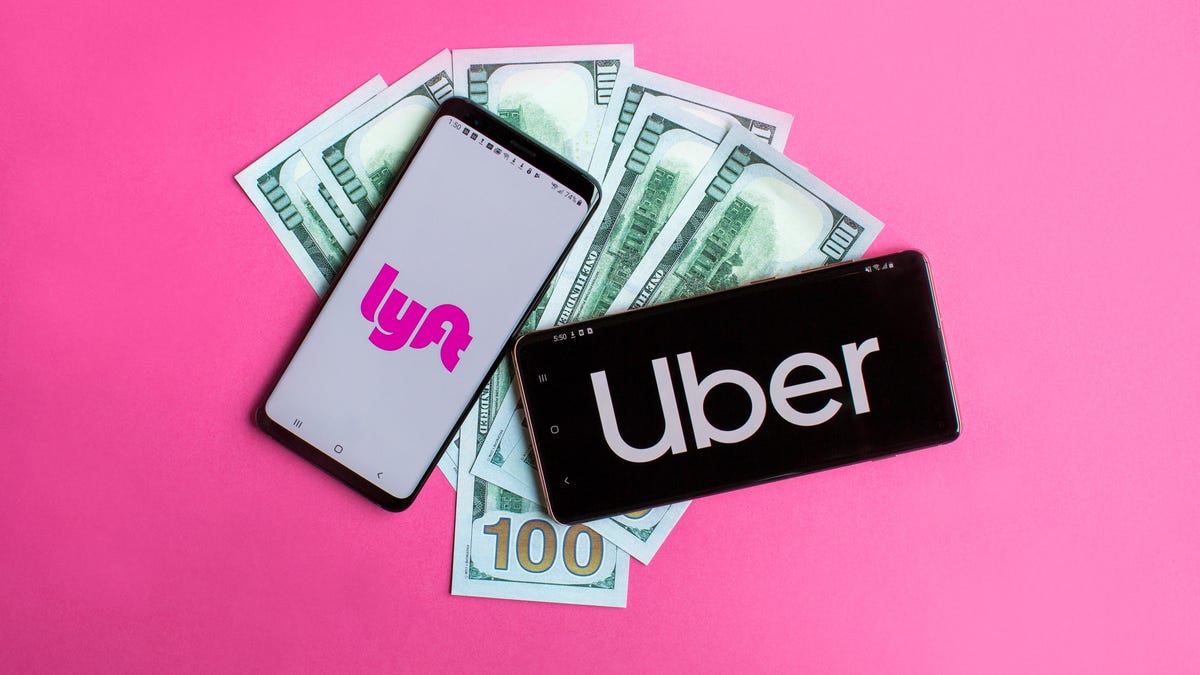Uber, Lyft must continue to limit size of fleets in New York City
To fight congestion, the city council votes to indefinitely extend a cap on the number of ride-hailing vehicles on New York streets.

Restrictions on Uber and Lyft will increase both evening rush hour speeds and driver pay, says New York City's mayor.
New York City will continue to cap the number of ride-hailing vehicles from services like Uber and Lyft that are allowed on its streets. The move aims to fight congestion and provide higher wages, Mayor Bill de Blasio said on Wednesday.
The city council had voted to cap the number of ride-hailing vehicles in New York City back in August 2018. The regulation was set to expire after a year but has now been extended indefinitely.
A new cap will also set a limit on how many empty vehicles can "cruise" the streets of Manhattan. Vehicles may now be empty in the Manhattan Core below 96th Street for only 31 percent of the time they're on the road. That applies between 6 a.m. and 11 p.m. on weekdays, and 8 a.m. and 11 p.m. on weekends.
Cruising must be decreased to 36% by February 2020, and hit 31% by August 2020, with the rule to be enforced by "strict penalties," including suspending or revoking a company's license to operate in NYC.
"For too long, app companies have taken advantage of hardworking drivers, choking our streets with congestion and driving workers into poverty," de Blasio said in a statement Wednesday. "This year we're going further, with new restrictions on how many empty cars these companies can have on our streets."
The caps combined will increase evening rush hour speeds by up to 10%, de Blasio said, and with empty vehicles limited, this could increase hourly net driver pay by 20% during the busiest times, he said.
Lyft called the caps "damaging" for both drivers and riders.
"Further restrictions on ride-share will result in fewer rides and lower earnings," a Lyft spokesperson said in a statement. "The mayor should respect the legislation passed by the city council last year and allow all parties to review the report on the impact of the cap prior to any discussions of an extension or any new rules and fees."
Uber said the cap will result in another medallion system, which could bankrupt drivers and enrich lenders.
"Not only is the mayor's policy hurting app drivers by forcing them to pay exorbitant fees to rent a car, but he has proposed nothing to fix the current medallion system that only benefits lenders and taxi insiders," Uber said in a statement.
The Independent Drivers Guild said policy should go further to ensure rideshare drivers are using their own vehicles, rather than needing to lease one.
"Leasing vehicles costs the typical low-income driver an additional $10,000 per year over owning their own vehicle," guild spokesperson Moira Muntz said. "New York City must not make low-income drivers indentured servants to the predatory leasing companies."
New York City already ensures drivers a per-trip amount netting $17.22 per hour minimum and targets the four main ride-hailing services in the city: Uber, Lyft, Via and Juno. According to de Blasio, since this rule took effect drivers have earned an additional $172 million between Feb. 1 and May 19, 2019.
De Blasio said the cap won't affect accessible vehicles or all-electric vehicles. The lack of wheelchair accessible ride-hailing vehicles has stirred up controversy.
First published at 12:46 p.m. PT on June 12.
Updated at 2:32 p.m. PT: adds comment from the Independent Drivers Guild.

